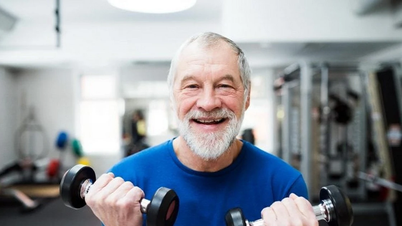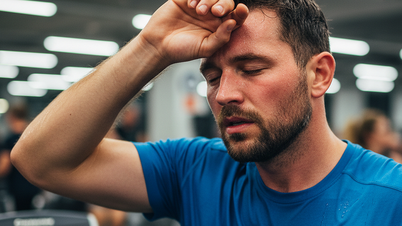Jogging in the morning brings many benefits to physical and mental health. One of the most important benefits is increased metabolism, alertness and improved energy levels for the whole day, according to the health website Healthline (USA).

Jogging in the morning will help improve endurance and increase the body's metabolism, thereby helping to burn calories more effectively.
Thanks to the increased metabolism, the amount of calories burned throughout the day will increase. In addition, jogging in the morning also stimulates the hormone endorphin, which helps us feel excited and comfortable.
Meanwhile, going to the gym in the afternoon or evening will bring some benefits such as increased strength and muscle mass. Studies show that lifting weights in the evening can help increase muscle strength, flexibility and better exercise performance than in the morning.
This is because our body temperature tends to be higher in the evening. This helps improve performance during exercise. In addition, strength and physical endurance are usually better at this time than in the morning. As a result, not only will performance be better, but fitness will also improve over time.
If conditions permit, combining jogging in the morning with lifting weights at the gym in the evening can help increase strength and endurance comprehensively. Jogging helps bones and joints to be flexible, improves endurance and burns more calories. Lifting weights reduces the levels of stress hormones cortisol and adrenaline, improves muscle strength and increases muscle mass.
This combination effectively improves cardiovascular health, lung capacity, weight loss and reduces the risk of developing chronic diseases such as obesity, diabetes and heart disease. Not only that, sleep is also positively improved.
Studies show that regular exercise helps people fall asleep faster, is less likely to wake up at night, and improves overall sleep quality.
However, one thing to note is that although exercise is good, you should avoid overtraining. The intensity of exercise is too much depending on your physical condition, age, gender, exercise intensity, rest and some other factors. It is important that the practitioner listens to his body. Overtraining will be accompanied by symptoms such as prolonged pain, frequent fatigue, easy illness and increased risk of injury. At that time, the practitioner needs to reduce the intensity of exercise and rest more, according to Healthline .
Source link


































![[Photo] Keep your warehouse safe in all situations](https://vphoto.vietnam.vn/thumb/1200x675/vietnam/resource/IMAGE/2025/10/1/3eb4eceafe68497989865e7faa4e4d0e)






























































Comment (0)